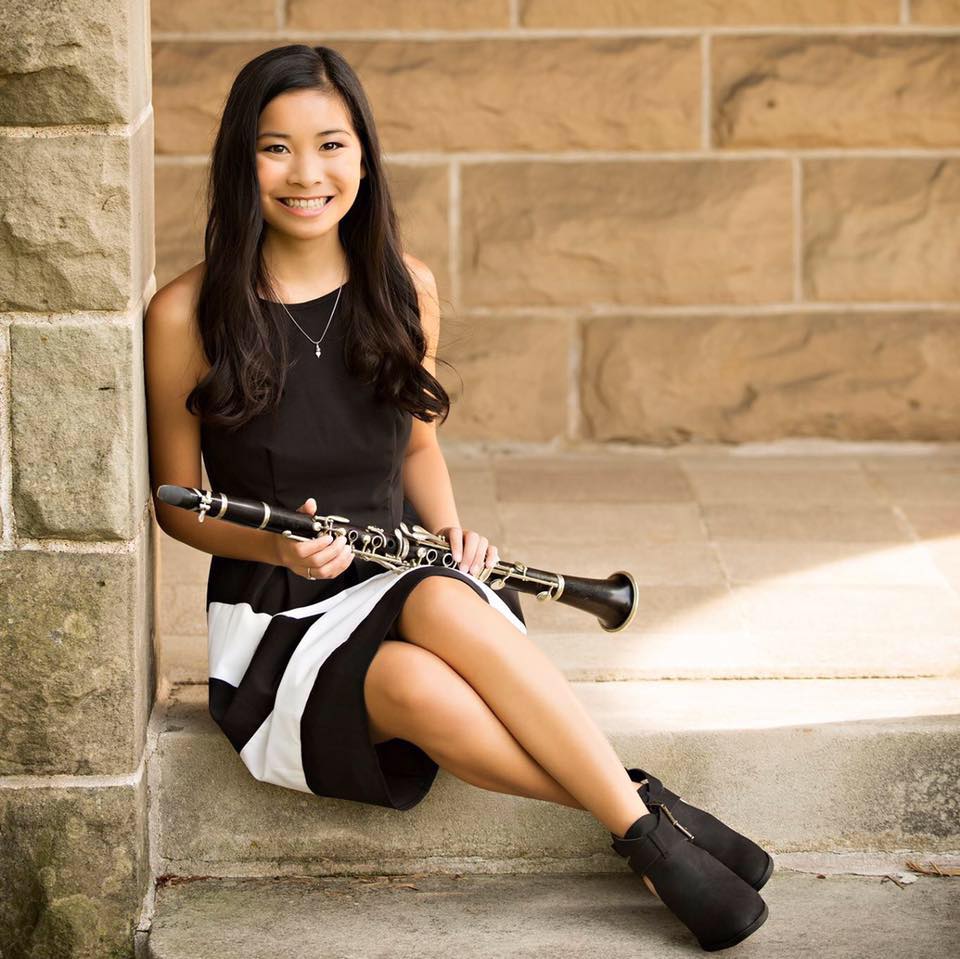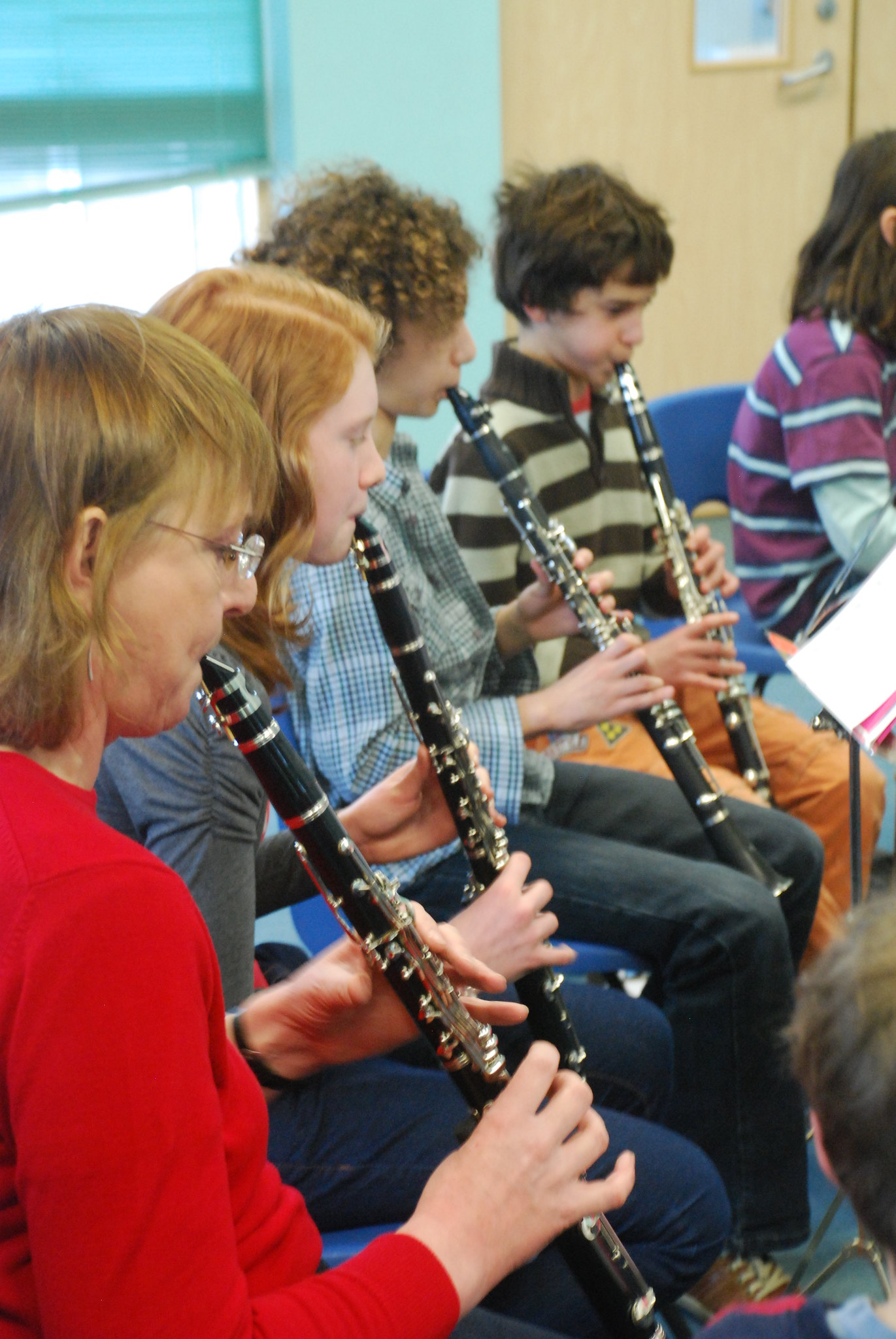Clarinet etudes are essential to every clarinetist's daily practice routine.
I started playing etudes during my freshman year of high school. My private clarinet instructor introduced them to me. As a young player, I didn't fully understand the importance of learning etudes. I would play everything right on the page; correct articulations, dynamics, rhythms, and notes. However, my teacher still wanted more. I thought, "what more could there be?"
An etude is just as special as an ensemble or solo piece. In other words, the etude should also sound musical. Including aspects like phrasing and sensations into the etude will bring the piece to life. Learning to incorporate these aspects into the etudes will make it easier for you to incorporate them into ensemble and solo repertoire.
What is an Étude?
The word "étude" is french for "study". It is a short, instrumental composition designed to help musicians practice specific musical skills. They are written by musicians who are experts at the instrument. Etudes have a wide range of difficulty, ensuring that there are études for clarinetists of all levels.
Etudes specifically target improving technique for the specific instrument.
Etudes can be focused on either technical or lyrical music. For clarinet, technical music solidifies more difficult fingering progressions and articulations. Technical etudes are most commonly played at a faster tempo. Technical etudes should also be played with accurate intonation and a good tone.
Lyrical etudes for clarinet solidify sensations, lyricism, intonation, and tone. Lyrical etudes are most commonly played at a slow tempo.
Importance of Etudes
Etudes are a significant part of the daily practice routine. I began playing etudes during my freshman year of high school.
Etudes incorporate clarinet scales. Every clarinetist should know and memorize their major and minor scales. Playing clarinet etudes every day will strengthen scale technique which includes muscle memory, finger coordination and dexterity, and note accuracy. Clarinet etudes will also help engrain all of the scales into your memory.
Every musician should feel comfortable and confident playing in any major or minor key. First, clarinetists should learn and practice their scales. Once the scales are well-learned, the clarinetist should practice etudes that are in different keys. Learning how to play in different keys through etudes will benefit you as you learn a more difficult ensemble repertoire.
Every musician should also feel comfortable playing in any time signature. Most etude books will feature selections in both simple and compound time signatures.
Etudes help strengthen the clarinet embouchure. Etudes are smaller works, but should still be played with a beautiful tone and color. A beautiful sound is achieved by having a strong clarinet embouchure. Etudes help build muscle endurance in the embouchure.
Etude Books for Clarinet
Melodious and Progressive Studies for Clarinet is a fantastic etude book for beginner to intermediate clarinet players. This book features etudes in every major and minor key. This etude book features etudes in various time signatures, preparing students for repertoire that are in more complex time signatures.
Rose 32 Etudes for Clarinet is an excellent etude book for intermediate to advanced clarinetists. This book includes both lyrical and technical etudes. The first two etudes are in C major, with no flats or sharps. As the etudes progress, more flats and sharps are added. The time signatures include 4/4, 2/4, 3/2, 6/8, 6/4, 9/8, and cut time. It is very important to know how to play in all of these time signatures because they will appear in solo and ensemble repertoire. The etudes start at an easier level and progressively get more difficult.
Tips for Practicing Etudes
- Start slow. Most etudes will have a tempo written in, but you don't need to play the etude at the goal tempo right away. When I practice etudes, I start at a slow tempo such as 60. Once I can play the etude successfully at that tempo, I cross that tempo out. When choosing a new tempo, I choose a tempo that's about ten clicks faster than the previous tempo. I repeat this pattern until I reach the goal tempo.
- Chunk it. Trying to practice the entire etude at once can be very overwhelming. It is also not the most beneficial way to practice because your mind is trying to focus on too many things. Practicing the etudes in smaller chunks will allow you to focus on fewer things.
- Identify difficult sections. It's important to isolate difficult sections and practice those sections daily.
- Always write stuff in! It's important to write in reminders on your music.
Closing Thoughts
Now that you know the importance of clarinet etudes, incorporate clarinet etudes into your daily practice routine! Clarinet etudes will help you become a more well-rounded player and will prepare you for ensemble and solo repertoire.





